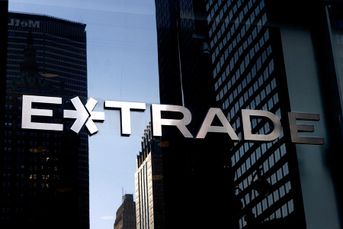Hurricanes that ravaged Puerto Rico also wreck its bonds
Some funds have over 10% of their holdings in the island's municipal bonds, which were already suffering from poor economic conditions before the recent storms.
Hurricanes Irma and Maria devastated Puerto Rico, and the storms’ effects on the islanders will last for years. Far less dire – but still lingering – will be the effect on Puerto Rico’s municipal bonds and the mutual funds that hold them.
According to Morningstar, 15 municipal bond funds have 10% or more of their portfolios in Puerto Rican bonds. Fourteen of them are from OppenheimerFunds; one is from MainStay (see chart). The funds have lost an average 1.57% this month through Sept. 28. The Bloomberg Barclays Municipal Total Return index has fallen 0.4% the same period.
The worst performer: Oppenheimer Rochester Maryland Municipal Bond (ORMDX), down 3.18% this year and 2.66% for the month through Sept. 28. The fund has 26% of its portfolio in Puerto Rican bonds. (Interest from Puerto Rican bonds are tax-exempt in all states).
PRE-STORM TROUBLES
Even before the storm, many Puerto Rican bonds were already in default or expected to default.The outlook for the bonds, which are already rated Caa3 with a negative outlook, isn’t good, according to Moody’s Investors Service.
“Economic disruptions on the island are inevitable in the storm’s aftermath, limiting output across sectors including manufacturing, retail sales and tourism,” according to a report dated Sept. 25.
“The Puerto Rico government has estimated physical damages from Hurricane Irma, which skirted the island on Sept. 6, at $1 billion. Maria, a smaller but similarly strong storm, certainly has inflicted far greater damage because it hit Puerto Rico directly. The resulting disruption of commerce will sap Puerto Rico’s already weak economy, depending on the duration of utility outages, receipt of aid funds and longer-range demographic repercussions.”
EXODUS FEARED
The storms could also spur further flight from the island, a trend that has increased since Puerto Rico’s financial woes came to light in 2015. Official estimates predict economic contraction through 2021.
(More: Ex-Morgan Stanley broker at center of Puerto Rico bond disputes.)
A note to investors from the OppenheimerFunds’ Rochester investment team posted Sept. 20 noted that Puerto Rico’s revenue collections in July were 8% higher than anticipated, nearly $49 million more than anticipated.
Neverthless, the company noted, “the oversight board and the government were in disagreement about budget amendments related to furloughs, Christmas bonuses and pensions. Various bondholders and insurers were at odds about how debt payments should be prioritized, and some municipalities in Puerto Rico were challenging plans regarding their deposits in and loans from the Government Development Bank.”
Learn more about reprints and licensing for this article.








